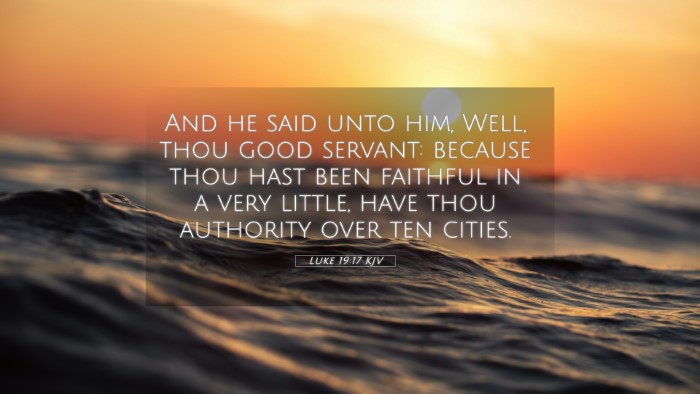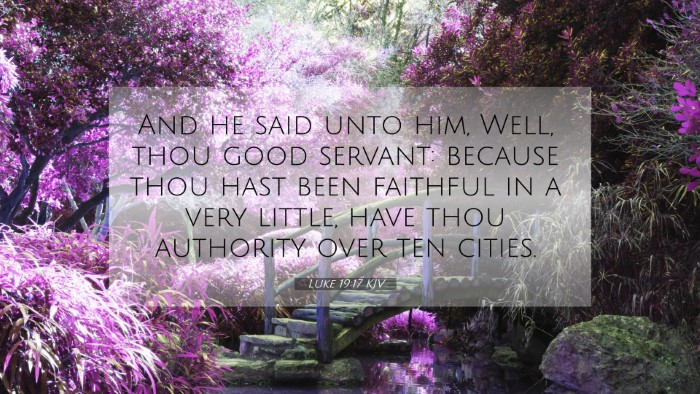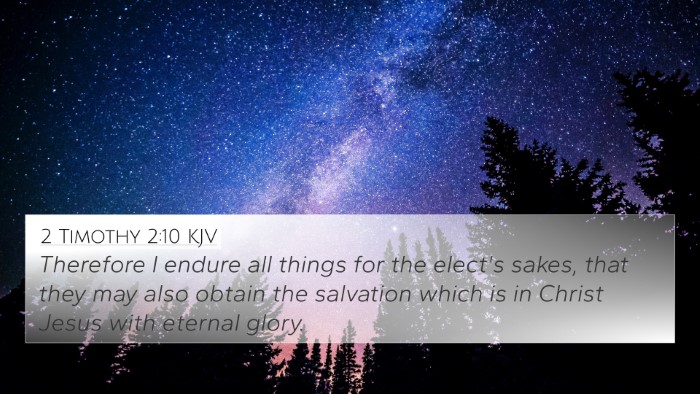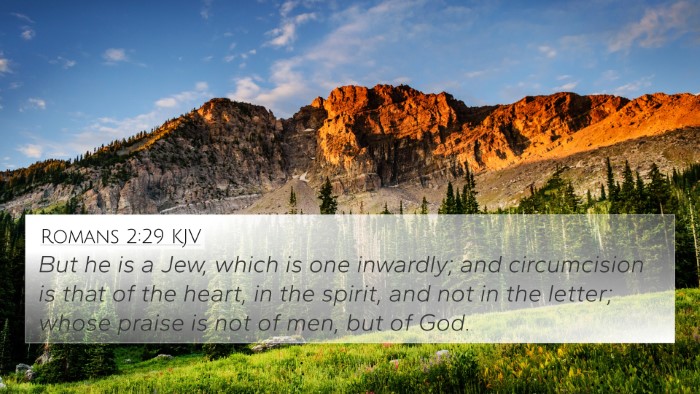Understanding Luke 19:17
Luke 19:17 states: "And he said to him, 'Well done, good servant! Because you were faithful in a very little, you shall be in authority over ten cities.'" This verse occurs in the context of Jesus' parable of the ten minas, which conveys significant themes concerning stewardship, faithfulness, and accountability.
Context of the Verse
The parable illustrates the expectation that followers of Christ are to use their God-given resources wisely. In this narrative, noblemen entrust their servants with resources and later reward them based on how well they managed what was given to them during the nobleman's absence.
Insights from Commentaries
-
Matthew Henry:
Henry emphasizes the principle of faithfulness in small things leading to greater responsibilities. The servant's diligence is rewarded with authority, illustrating God's pattern of promoting those who demonstrate loyalty and competence in their duties.
-
Albert Barnes:
Barnes points out that this teaching underscores a moral obligation to employ our talents and resources effectively. The servant's success in managing a small amount translates into elevated authority—a reflection of God's justice in rewarding faithful service.
-
Adam Clarke:
Clarke elaborates on the significance of the servant's portrayal as "good." The servant's faithful stewardship not only signifies proper management but also a deep commitment to his master's interests, which is critical for Kingdom work.
Thematic Connections and Cross-References
This verse provides profound insights that can be connected to other biblical passages. Here are cross-references and their implications:
-
Matthew 25:21: "His lord said unto him, Well done, thou good and faithful servant..." - Similar theme of reward for faithful stewardship.
-
Luke 12:48: "...For unto whomsoever much is given, of him shall be much required..." - Highlights the necessity of accountability for what was entrusted.
-
1 Corinthians 4:2: "Moreover it is required in stewards, that a man be found faithful." - Faithfulness is essential in Christian stewardship.
-
Revelation 2:10: "Be thou faithful unto death, and I will give thee a crown of life." - Faithfulness leads to eternal reward.
-
2 Timothy 2:12: "If we suffer, we shall also reign with him..." - Indicates that perseverance in faith will lead to positions of authority.
-
Proverbs 28:20: "A faithful man shall abound with blessings..." - Suggests that faithfulness brings God's blessings.
-
Galatians 6:9: "And let us not be weary in well doing..." - Encourages endurance in doing good, implying that faithfulness will be rewarded.
Practical Applications
Understanding Luke 19:17 encourages believers to:
-
Utilize Gifts and Talents: Every believer has been endowed with unique abilities that should be put to effective use in service to God and others.
-
Be Accountable: Each person will give an account of how they used their resources, time, and talents before God.
-
Seek Faithfulness: Strive to be diligent and faithful in the little responsibilities entrusted, with the expectation of greater stewardship in the future.
Conclusion
Luke 19:17 serves as a powerful reminder of God's expectations for His servants. By understanding the themes presented in this verse and its connections with other scriptures, believers are encouraged to act faithfully in their God-given roles, fostering a fruitful life that glorifies God. This creates a rich inter-Biblical dialogue that highlights the principles of stewardship and accountability throughout scripture.













